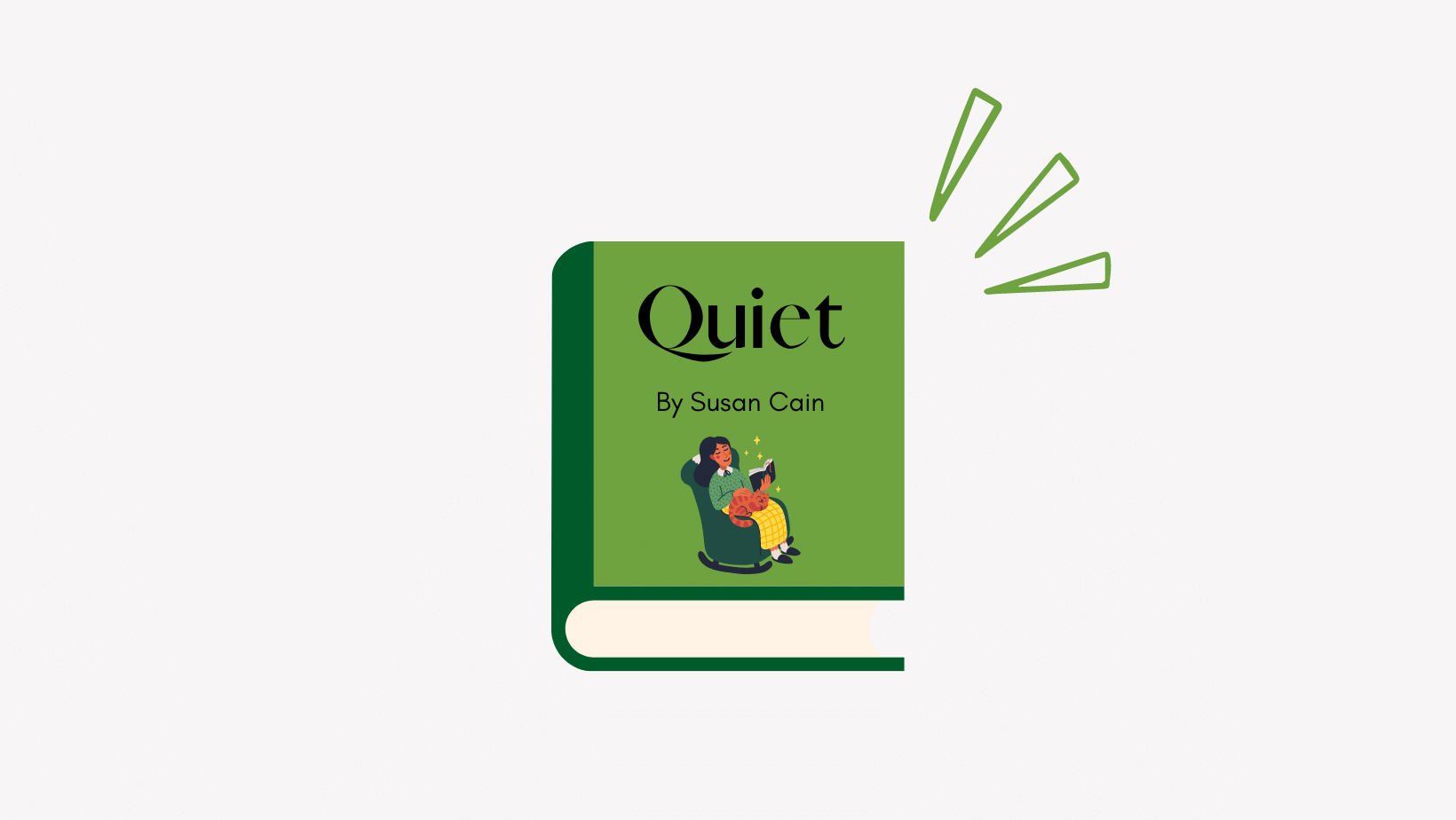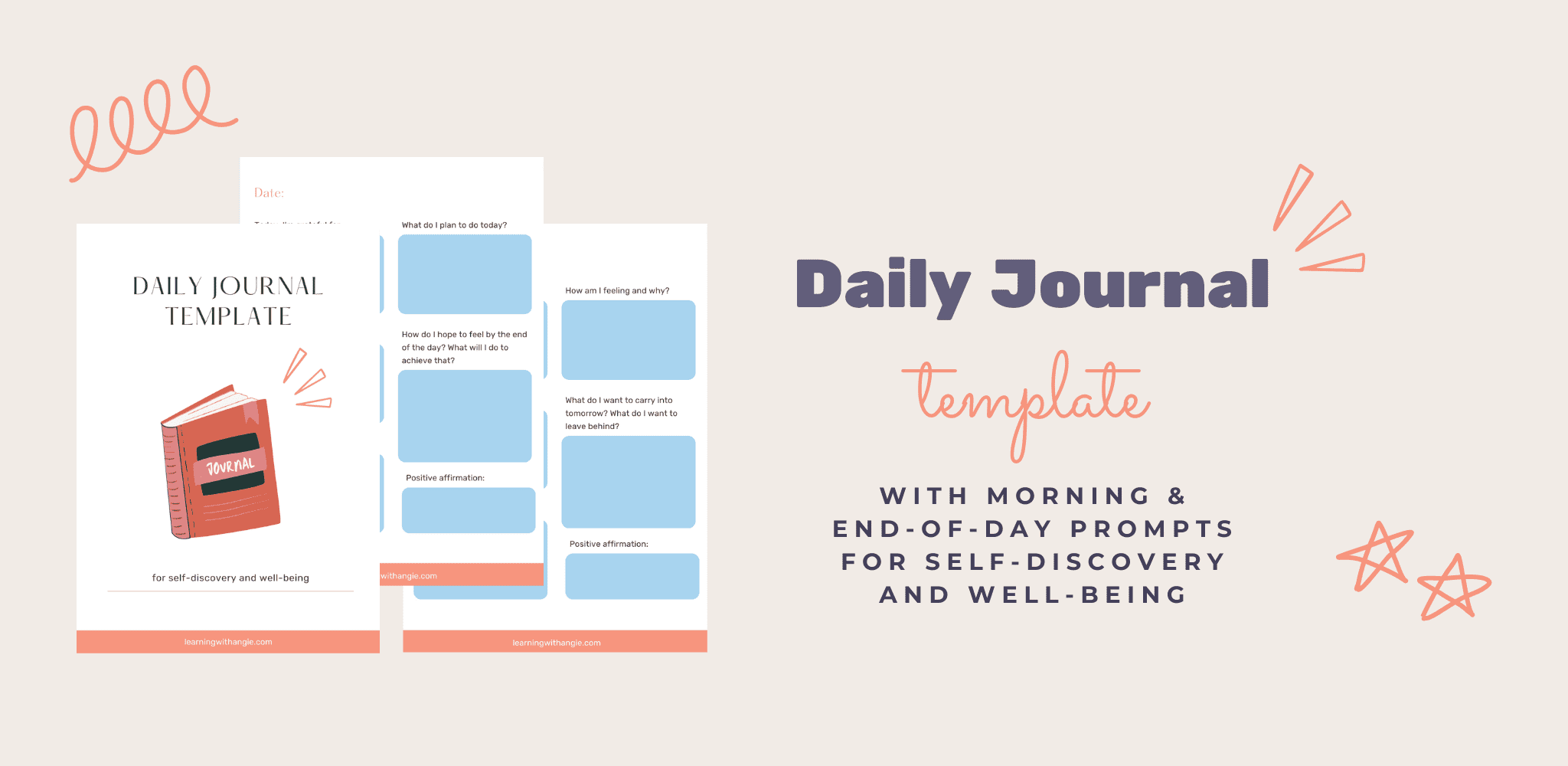

Did you often feel out of place growing up because you’d sit on the side while other kids were loud and chaotic? You’d have adults tell you to stop being so “quiet” and talk more.
Maybe even now, you frequently prefer to stay home rather than go out with friends. And when you do go out, you feel quickly exhausted by the incessant conversation and energy.
Yet, you may have thoughts like, “Is something wrong with me? Why can’t I be more extroverted? It would make life so much easier.”
American culture””and indeed much of Western culture today””seems to be all about who can talk the loudest. People who are bold, charismatic, and talkative seem to attract all the attention, while soft-spoken, reserved people are often pushed to the sidelines.
It increasingly seems like there is no room left for introverts in our extrovert world. Or is that so?
This post may contain affiliate links, which means that when you make a purchase through a link, I make a small commission at no extra cost to you.
How I Learned to Embrace My Introversion
I used to have the same insecurities about living as an introvert in an extrovert world. It wasn’t until I came across Susan Cain’s Quiet that I learned about the powerful benefits of being an introvert.

Cain, who is a self-proclaimed textbook introvert, spent 7 years researching and writing a book with the purpose of showing how introverts are absolutely indispensable to society. Yes, you read that right: introverts are just as necessary in our society as extroverts.

Yet, the numerous strengths of being an introvert are commonly overlooked. There are many negatively stereotyped introvert traits””shyness, sensitivity, need for solitude””to name a few. But what if I told you that these traits are precisely why we need introverts in our society?
Quiet taught me not to be ashamed of my introverted qualities and strive to adopt extroverted qualities. It taught me to embrace being an introvert and cultivate my existing qualities to become an influential force.
In this article, I debunk 5 common introvert myths based on lessons I learned from Quiet. By the end, you’ll realize that your introvert traits aren’t something to be ashamed of””instead, they’re something you can take advantage of to create as much impact as extroverts, if not more.
Myth #1: Introverts Make Worse Leaders
Growing up, I’d watch celebrities exude effortless charisma in interviews and politicians work people into a frenzy with empowering speeches. Even in group work, I’d find my voice crushed beneath those of my more vocal classmates. I’d think Why can’t words come easier to me? Why can’t I say just the right thing at just the right time?
It wasn’t that I didn’t have things to say””I did. But while my mind was constantly swirling with thoughts, I found it challenging to organize my thoughts into words. I believed I was at a disadvantage to my extroverted classmates because I couldn’t get my words out fast enough or because sometimes, I was too timid to speak them.

In today’s society, it often feels like the best leaders are those who are naturally vocal””those to whom words come easily and quickly. But is that really so?
Extroversion Does Not Equate to Better Leadership
In Quiet, the relationship between extroversion/introversion and the quality of leadership is one of the first issues that Cain tackles. And the conclusion she came to after scrutinizing many scientific studies is that: no, extroverts do not make better leaders.
Several studies have shown that those who speak up most frequently do not necessarily have better ideas. In fact, one of the greatest benefits of being an introvert vs. being an extrovert is that we think before we speak. Plenty of leaders in business, social reform, and other “vocal” fields have been thoughtful introverts. (In fact, the author herself has started a “quiet revolution” in regard to the way introverts are perceived.) Introverts don’t speak often, but when they do, the depth of thought behind their words gets people to listen.
Additionally, unlike extroverts, introverts are not comfortable with being the center of attention and having their voice heard most often. In group settings, introverted leaders’ ability to let others’ voices be heard can make people feel more accepted.

The Main Takeaway
Introverts can make just as impactful leaders as extroverts. Just because we are people of fewer words does not make the words we say any less meaningful. And just because we aren’t comfortable talking all the time does not make us worse at leading people.
Myth #2: Collaboration is Necessary for Innovation
Nowadays, schools and workplaces are set up to facilitate collaboration. It’s all about teamwork and exchanging ideas.

How many times have you wished you could work alone when a teacher assigned a group project? Do you prefer to study alone, even though many of your classmates love working in study groups?
As an introvert, you may feel like your desire for solitude is at odds with the modern trend of collaborative work. However, after reading Quiet, I learned that there is nothing wrong with preferring working alone to working in groups.
In fact, our natural pull towards solitude is one of the greatest benefits of being an introvert.
Solitude Facilitates Creativity
In Quiet, Cain discusses how open-space office layouts and group brainstorming sessions result in lower productivity and lower-quality ideas. (There are several psychological explanations for this, which I won’t detail here.) In fact, the best ideas require intense focus and deliberation, which can only be done in solitude.
Many prominent innovators created their multibillion-dollar companies through countless hours of work in solitude. Many revolutionary scientists, artists, and other figures made great breakthroughs by working alone.

The Main Takeaway
As introverts, one of our greatest assets is our gravitation towards solitude and lower susceptibility to external distractions.
However, this is not to say that cooperation is terrible. Exchanging ideas is still necessary. It’s important to swap ideas with classmates, colleagues, and mentors””over lunch, during a meeting, or whenever else it may be.
But when you feel the need to retreat somewhere to work alone, know that solitude also has great value.
Myth #3: It Sucks to Be Sensitive
Growing up, I was frightened by lots of things””strangers, fireworks, dogs, swimming; the list is truly endless. While I cried by the side of the pool the first time I went swimming, my friend jumped right in with zero care in the world.
My parents couldn’t understand why I was so frightened by so many things. Sometimes, I wished I could be more like my “daredevil” friends. Why couldn’t I speak up without caring what others thought? Why did I have to be so affected by small arguments with friends? In fact, I even got told by one teacher that I was “too sensitive”.
However, Quiet taught me that being sensitive, or as Cain describes it “highly reactive,” has its own merit.
Sensitivity is Affected by Biology
In Quiet, Cain explains that introverts are biologically predisposed to be highly reactive. If you were extremely shy around strangers as a kid, you were probably also frightened by loud noises, animals, and other new stimuli. Shyness around strangers was actually a general response triggered by your nervous system toward all new stimuli.
You may be thinking””okay, that’s great and all, but what good is there in being sensitive?
Sensitivity Can Make You an Effective Leader, Critical Thinker, and Good Empath
As an introverted kid, you probably found yourself observing conversations more than you participated in them. Since introversion is closely tied to sensitivity, you probably absorbed more details about those conversations than a less sensitive person. In fact, studies have shown that sensitive observers notice more about social dynamics. Therefore, they can grow up to become very effective leaders””moreso than their less sensitive peers.

Additionally, Cain states that highly sensitive people tend to think in “an unusually complex fashion”. If small talk has always been the bane of your existence, this explains why. As introverts, our minds thrive on topics with depth and complexity, making it extremely difficult to discuss trivial matters.
Higher sensitivity is also associated with stronger emotions, which lends itself to a greater ability to empathize and a stronger moral conscience. In fact, many social leaders, from Rosa Parks to Eleanor Roosevelt to Mother Teresa, have been highly sensitive, soft-spoken introverts.
The Main Takeaway
As introverts, our sensitivity is not a liability. In fact, high sensitivity is one of the greatest benefits of being an introvert. It allows us to notice more about our environments, think in complex ways, and empathize deeply with others.
However, this isn’t to say that being “highly sensitive” is objectively better than being “less sensitive”. As Cain explains, less sensitive people are not any less convicted of their values. Additionally, cooperation between highly sensitive and less sensitive people can lead to great results.
The main lesson to learn here is that the highly sensitive shouldn’t be seen as weak or “uncool” compared to bold and daredevil sorts.
Myth #4: It’s Uncool to Be Quiet
Have you ever wished you could be like the extroverted, talkative students who seem to be friends with everyone?
Growing up, I often felt like a bit of an outsider. I was the type of kid who would get comments like, “Oh, she talks?!”
But even though I knew I was quiet, being explicitly told so made me uncomfortable. It made me feel like there was something inherently wrong with my personality that made me stick out. The adjective “quiet” held a negative connotation.

But while our extrovert world stereotypes words like “quiet” and “shy” in a negative way, they really shouldn’t.
There is a “Soft Power” in Being Quiet
In Quiet, Cain goes into great detail about Mahatma Gandhi. Through his story, she shows that shyness and introversion can help you focus on what’s truly important.
Gandhi was an exceptionally shy man, and his shyness helped him avoid disagreements that weren’t worth his breath. He was able to focus his energy only on what was important.
Additionally, Cain discusses something called “buzz,” or the feeling of exhilaration from getting a reward. Studies have shown that extroverts prioritize the “buzz,” while introverts are biologically predisposed to be skeptical of it.
I won’t get into the nitty-gritty details of this, but being able to ignore the “buzz” is a powerful benefit of being an introvert. It explains why introverts tend to have greater persistence and less impulsivity than extroverts.

The Main Takeaway
Being quiet can be powerful. In our extroverted society, the word “quiet” triggers connotations like weak and uncool, but it is anything but.
When we have strong convictions, our singlemindedness and resiliency can help us persist through great challenges to make great achievements.
Myth #5: Introverts are Limited By Inferior Social Skills
Growing up, I was always told that I needed to stop being so shy. Although I’ve overcome much of my shyness, I still often feel awkward in social settings. I’ve often felt like not being able to maintain bubbly, comfortable small talk was one of my greatest weaknesses.
However, reading Quiet helped me realize that introverts are not limited by inferior social skills.
We Can Adopt Extrovert Traits
Okay, you may be thinking, “Wait, isn’t this section supposed to be about how introverts don’t have inferior social skills? But now you’re saying we need to adopt extrovert traits?”
So let me take a moment to explain. Firstly, I think we can all agree that there are times when you do need to speak up. If you feel like being socially awkward makes this extremely difficult, this section is supposed to help you understand that this is an obstacle you can overcome.
Just as how extroverts could take a page out of our book and listen more, we can take a page out of their book and talk when we need to.

Secondly, the “Listening is Powerful” section is about how not being the one doing all the talking can be beneficial.
Overcoming Shyness
So, back to the main purpose of this section: adopting extrovert traits. If you’re an extremely shy person, Cain explains that you can overcome your shyness to some degree.
From a biological standpoint, the fear of talking to people is triggered by a certain part of the brain called the amygdala. However, there is another part of the brain””the prefrontal cortex””that can control the primitive emotions triggered by the amygdala.
If you regularly expose yourself to social interactions, the prefrontal cortex becomes better and better at tamping down the anxiety caused by the amygdala. You’ll gradually become more comfortable with conversation-making in social settings.

Finding Your Inner Extrovert
Not only can you overcome shyness, but you can also exhibit extrovert qualities””like enthusiasm and talkativeness””in social settings, given the right circumstances.
According to Cambridge professor Brian Little’s Free Trait Theory, we can behave like extroverts if we’re pursuing “core personal projects” or things we’re truly passionate about.
Although I didn’t know it at the time, certain activities I pursued in high school helped me step outside of my comfort zone in healthy ways. I had enough passion for those activities to willingly do things from my worst nightmares: public speaking, leading meetings, coordinating events, and attending conferences.
Listening is Powerful
In the past two sections, I’ve been talking about ways introverts can become more vocal. But earlier, I also promised to explain how introvert qualities can promote social relationships. That’s what this section is all about.
Have you ever wished you had more things to say in conversations? But, let me ask you this question: have you ever had a conversation that made you think, “Why can’t this person give me a chance to talk?”
Well, the truth is, a lot of people feel that way. They would love to have someone listen. And listening just happens to be an introvert’s natural talent.

Cain provides a wonderful example where an introvert utilizes this quality to his advantage. The introvert of interest is a salesperson, a job in which success is typically attributed to extraversion.
However, this individual is very successful because he’s so good at listening, not talking. By listening more than he talks, he makes his clients feel understood and thus, more inclined to buy.
The Main Takeaway
When faced with the question, “When should I indulge in my introversion, and when should I be more vocal?” understand that it’s all about finding a good balance. Sometimes, you need to be more vocal””at social events or when pursuing a passion. However, there are also times when you should let your introvert qualities reign.
Learn to Embrace Your Introversion
We live in a society where extroversion seems to be much more desirable than introversion. Growing up, you were probably constantly told to be louder, to the point where you wished you were an extrovert instead.
But Susan Cain’s Quiet shows that the quiet introspection, astuteness, and persistence of introverts is just as powerful as the boldness, assertiveness, and loquacity of extroverts. There are powerful benefits of being an introvert.

If you’ve always felt misunderstood or overlooked as an introvert, I highly recommend that you get a copy of Quiet for yourself. It was a life-changing read for me, and this post does not do justice for all the details Cain spent nearly a decade putting together””from the biological and psychological workings of the introverted mind to how we can cultivate our naturally-endowed talents.

You’ll be taken through a journey of learning about yourself, fitting into an extrovert world, and developing a healthy, productive relationship with your introversion.
And most importantly, you’ll realize this:
As introverts, we shouldn’t have to change ourselves to be someone we aren’t””and in fact, society would be worse if we did.
For more posts on inspirational books to unlock your potential, check out these links:

Learning With Angie is a place to share honest, unfiltered advice to promote student success. So if you’re a student (high school, college, or beyond) looking for tips on productivity, studying, personal growth, and more to reach your potential, this is the place! To read more about Learning with Angie, click here.


















